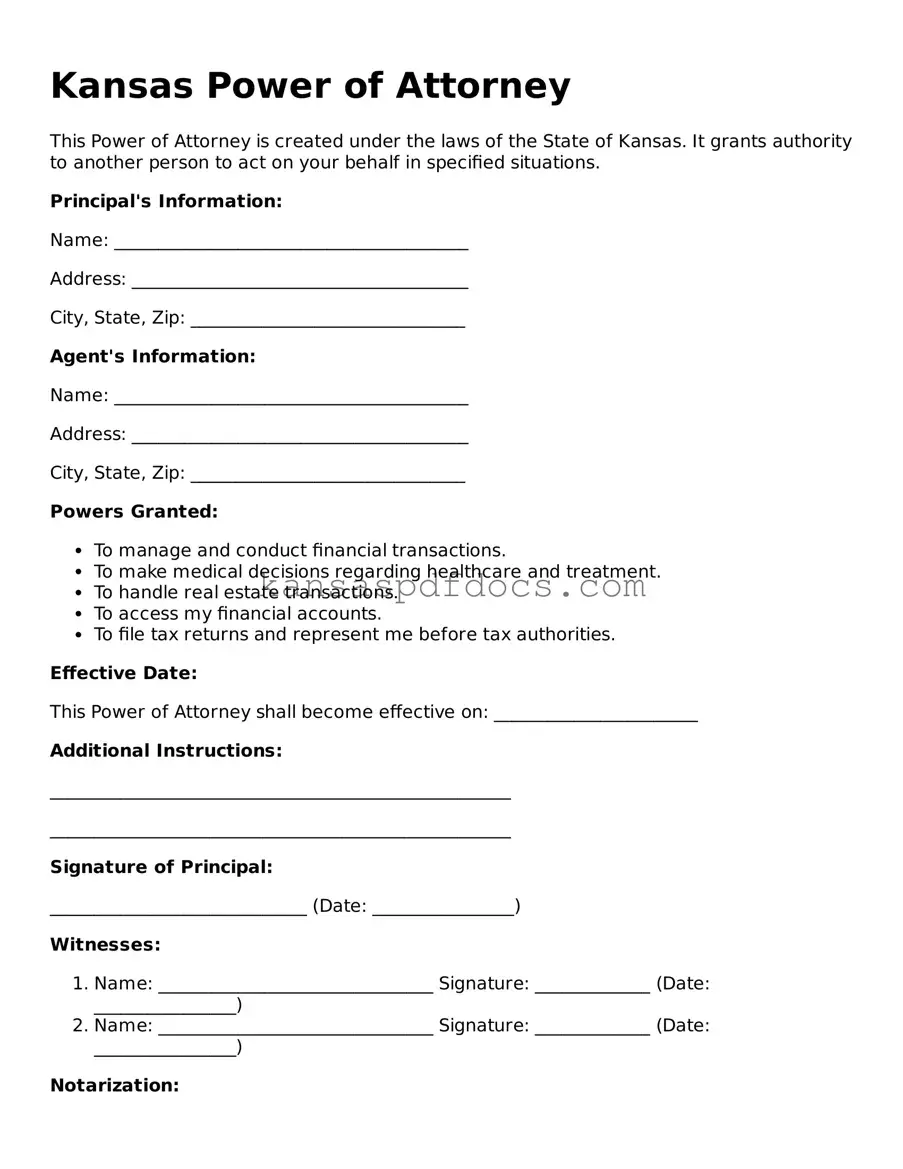Valid Power of Attorney Template for Kansas State
A Power of Attorney form in Kansas is a legal document that allows one person to grant another person the authority to make decisions on their behalf. This can include financial matters, healthcare decisions, or other important issues. Understanding how to properly complete and utilize this form is crucial for ensuring that your wishes are respected in times of need.
Access This Form Now

Valid Power of Attorney Template for Kansas State
Access This Form Now
Your form isn’t ready yet
Edit and finalize Power of Attorney online without printing.
Access This Form Now
or
Get PDF Form
